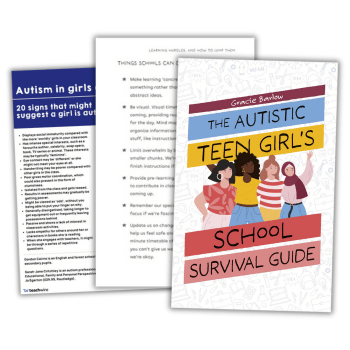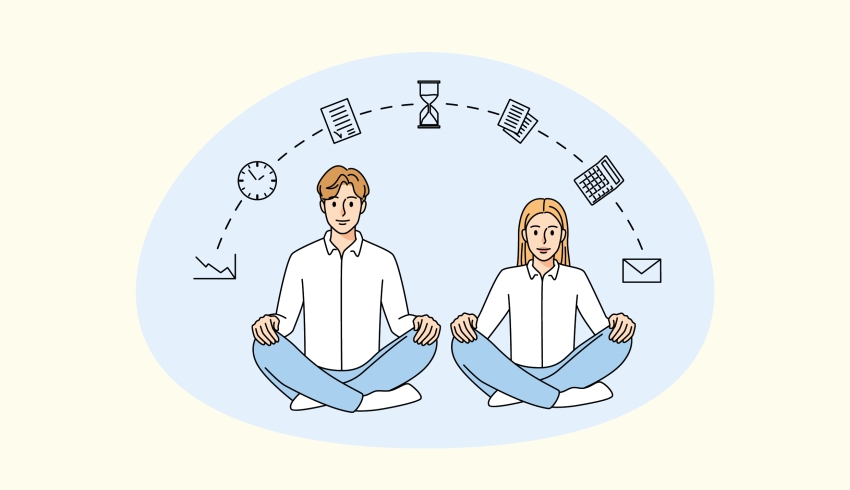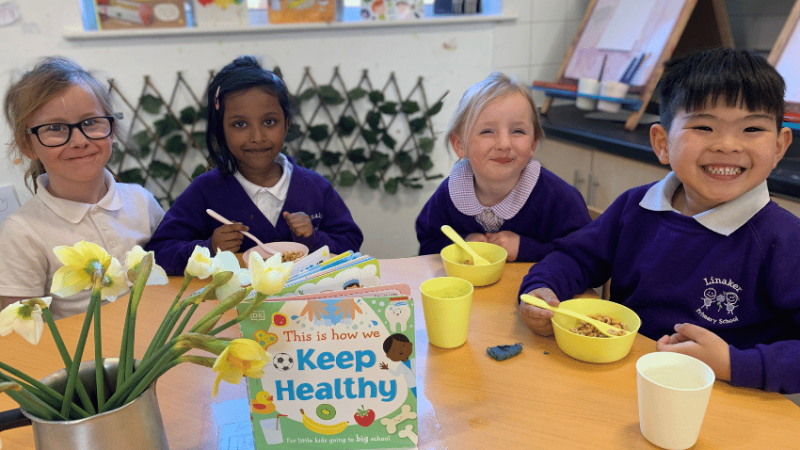Teacher stress – Mindfulness and coping strategies for educators

Take a deep breath and find your happy place with these on-the-go tension-busters…

- by Teachwire
- Classroom expertise and free resources for teachers

Ever feel like teacher stress is getting on top of you? Fear not – these on-the-go ideas can help you take a moment and get grounded, all without leaving the classroom…
Quick techniques for staying calm in your classroom
By regularly setting aside just few minutes for breathing exercises, teachers can significantly lower their stress levels in lessons, says Carolyn Cowan…
By incorporating a quick and easy-to-master breathing technique into your daily routine, you can override those stressful symptoms, bring positivity back into your classroom and remain calm during those difficult school days.
You only need five minutes to feel the benefits, and can practise using the technique while sitting in an upright position on a sturdy chair, cross-legged on the floor or standing with your feet shoulder-width apart. If you want to get the most out of the exercise it’s best to not slouch, so avoid using softer furniture such as sofas or beanbags.
Light stretching
Once you’ve found a comfortable, quiet place and adopted a position that suits you, it’s important to begin by doing some light stretching first. Slowly stretch your arms up to the ceiling and then bring them back down again.
You might want to also roll your shoulders a few times to help loosen them up further. You’re now ready to try a breath technique that will reset your stress system.
Inhale through your nose for three seconds, allowing your belly expand, and then release. Now, suspend the breath for seven seconds before taking three seconds to slowly exhale. Repeat this process at least five times.
Don’t worry if you can’t hold for the full seven seconds on your first try. As you continue, your body will relax as your stress system begins to reset, and you’ll soon start to find that the whole process becomes easier.
Repeat the process
For best results, try taking three minutes out of your day to repeat the process with your eyes closed. Once you’ve completed the process, remain sitting with your eyes closed for a further two minutes.
With this quick and handy breathing technique in your back pocket, you’ll be well-equipped to enter your classroom with an air of calm confidence, ready to tackle any difficulties that might spring up throughout the day.
Try sharing this technique with your colleagues, or perhaps even your students, and who knows – over time, you might well start to see a shift in your school’s general atmosphere…
Carolyn Cowan is a London-based psychotherapist and breathwork teacher; find out more about Carolyn and her work by visiting carolyncowan.com
8 more tension-busting techniques

Pause a moment
Taking a minute to 90 seconds can help regulate your emotions when things get stressful. That pause can give you time to acknowledge your stress response and consider how you’re going to respond.
It can be useful to have a visual aid to help you in these moments; if you’re in the classroom, put a sand timer on the whiteboard to give you and your class a minute.
Watching the sand flow through can help to bring those teacher stress symptoms down. You can do the same at home by setting a timer on your phone and watching the seconds pass.
Trending
The power of breathing
There’s a lot to be said for the short sharp intake of breath and a long exhale. This helps to aid the regulation of stress symptoms by stimulating the parasympathetic branch of the nervous system.
The 4-7-8 method can be particularly effective: inhale for four seconds, then hold your breath for seven before exhaling for eight seconds.
Grounding
Grounding is simply recognising where you are. If you’re standing up, then it’s about making sure that you are aware of which parts of your feet are actually touching the ground, pushing each one of your toes down, so that you feel them purposefully.
It’s designed to help you get a sense of where you are in in time and in space. You can also stand against a wall, feet apart, pushing your back flat against the wall.
Hand on heart
Putting your hand over your heart and feeling your chest rise and fall can help to calm and soothe. If you use this approach alongside breathing techniques, try to be conscious of your slowing pulse. This can be a really helpful way to control teacher stress.
Swaying
A very gentle rhythmical swaying activates the cerebellum part of our brain and can be very soothing. It works for babies and it’s no different for adults.
Even a very subtle rocking motion can help to regulate your emotions, so it doesn’t have to be a full-on, rock concert sway!
Hand massage
Our hands are the best prop that we’ve got. Gently rubbing your thumb on your palm in a slow circular movement helps to release the hormone oxytocin, which calms and gives you a feeling of safety as well.
Consider your happy place
Having something near you that takes you into a moment where you feel wonder and a sense of connection can really help. It could be a photograph of people that really matter to you in your life, or a holiday photo or souvenir.
You can use these ‘props’ during a minute’s pause; use them to ask yourself questions such as, “When I’m there, what can I see? What can I hear? What does it feel like?”
Give yourself an anthem
Having your own theme tune or anthem can give you a burst of confidence whenever you’re feeling that particular teacher stress or your confidence is knocked.
If it’s not appropriate to play that music (it often isn’t!) then play the song inside your head – it might just be enough to give you the boost that you need.
Viv Trask-Hall is head of product and innovation at Thrive, which trains teachers and other education professionals to support children’s wellbeing.










